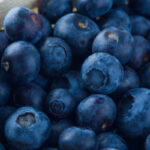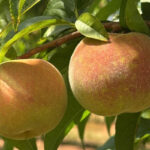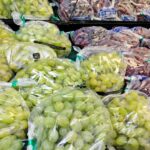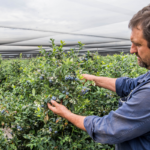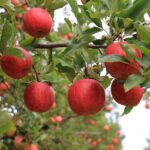Australia: Panama Disease TR4 confirmed in Queensland

The first ever case of Panama Disease Tropical Race (TR4) has been confirmed in the Australian state of Queensland, but an industry head is 'confident' the fungal disease can be contained. 
Authorities had previously quarantined the affected banana plantation in Tully, Northern Queensland, earlier in the month following a suspected detection of the incurable disease.
Queensland Government biosecurity agency BQ yesterday (March 15) announced that a second round of testing on the samples had returned positive results for TR4, and BQ had confirmed it as the first case of the disease on a Queensland banana farm.
Chief Biosecurity Officer Dr Jim Thompson said these latest results were from fresh plant samples recently taken from the same block on the Tully farm where the disease was first reported. There has been no confirmed detection outside of the affected farm.
An earlier sample was taken in February by an ABGC field officer from one plant on the same block after plant symptoms were reported by the farm's owner. That sample had returned a positive polymerase chain reaction (PCR) test result from laboratories in Brisbane and Darwin.
While TR4 had never previously been detected in Queensland, in the 1990s the disease wiped out a large number of banana plantations in the country's Northern Territory.
Australian Banana Growers' Council (ABGC) chairman Doug Phillips said the recently announced test results had been expected, given earlier positive test results on the separate plant sample.
He said banana growers and others in the industry had already begun on-farm biosecurity efforts to reduce the risk of TR4 affecting other farms.
There are two types of testing being used on the samples – a PCR test on plant DNA that has so far returned positive results, and another another one called a Vegetative Compatibility Group (VCG ) test. VCG results are still pending and will provide more information about the strain of Panama found on the farm.
"Everyone in the banana industry is already acting to reduce the risk of TR4 affecting other farms," Phillips said in a release.
"There is a very determined, positive and united attitude from growers, industry partners, community members and government representatives.
"While the detection of Panama TR4 on a farm in a major growing area is a substantial challenge for the Australian banana industry, we are confident it's a challenge we can successfully meet."
Last week, website Abc.net.au reported that Phillips had said rain from Tropical Cyclone Nathan may wash potentially contaminated soil into other plantations.
"Things like grassed inter-rows and measures like that will try to help contain it," Phillips was quoted as saying.
"But the reality is, there are things that we can control or have influence over and there's things that we can't. And high rainfall events are something that are very difficult to really have any solution to."
Phillips said the Tully farm remained under the quarantine restrictions introduced on March 4, but there was no impact on banana production on other farms with banana supply continuing as usual.
"While the one Tully farm is quarantined, banana farm operations elsewhere in North Queensland are all continuing as usual, including harvesting, packing and transportation of bananas to market," Phillips said.
"It's important to remember that banana fruit is not affected by TR4 and remains completely safe to handle and eat. There is zero risk to consumers.
"TR4 only affects banana plants when it enters their root system and restricts their uptake of water, stopping them from producing harvestable bunches and eventually killing them. At present, the fungus has been detected on a section of the one banana farm in Tully and we have about 700 farms nationally, including about 280 banana farms throughout North Queensland."
Phillips said that while TR4 was one of the world's most serious banana plant diseases, the use of containment measures could successfully slow its spread within an affected farm and substantially reduce the risk of it moving to other farms.
"While our main focus has always been in preventing TR4 from reaching our main banana growing regions, we have already begun work to reduce the potential risk if it did arrive through strategies such as on-farm biosecurity measures and better soil health practices. The industry is also trialling disease-resistant banana plant varieties," he said.
Because plants affected by the fungus can take months to show symptoms, growers and banana farm workers have been urged to keep a watch for any plants exhibiting potential symptoms, such as yellowing and wilted leaves.
Growers have been reminded to continue biosecurity practices such as not sharing farm machinery and equipment with other growers and removing all plant material and soil from any machinery, equipment, vehicles and footwear as they come onto and leave farms. Clean banana planting material is also to be used.
Photo: Ian Ransley, via Flickr Creative Commons (Image cropped)
















